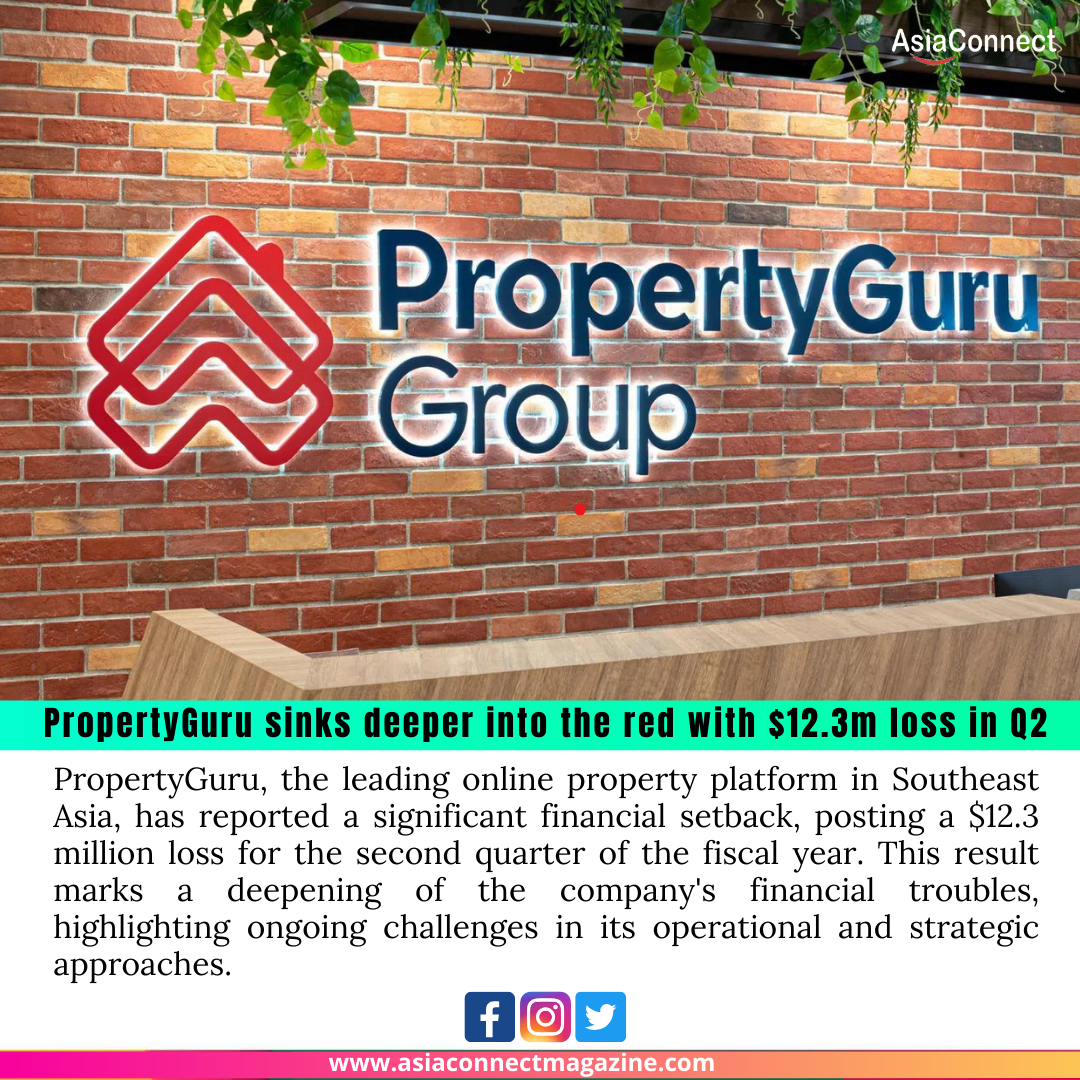PropertyGuru, the leading online property platform in Southeast Asia, has reported a significant financial setback, posting a $12.3 million loss for the second quarter of the fiscal year. This result marks a deepening of the company’s financial troubles, highlighting ongoing challenges in its operational and strategic approaches.
The quarterly loss reflects a continuation of the financial strain that PropertyGuru has been experiencing. Despite its dominant position in the real estate technology sector, the company has faced a series of hurdles that have impacted its profitability. The $12.3 million loss for Q2 represents a notable increase compared to previous periods, raising concerns among investors and industry analysts about the company’s financial health and long-term viability.
PropertyGuru’s financial difficulties come amid a rapidly evolving real estate market and increased competition within the property tech industry. The company, which operates in several key markets including Singapore, Malaysia, Thailand, and Indonesia, has been grappling with several challenges that have contributed to its deteriorating financial performance.
One of the primary factors behind the loss is the company’s ongoing investment in expanding its product offerings and enhancing its platform capabilities. While these investments are intended to strengthen PropertyGuru’s market position and drive future growth, they have also led to increased operating expenses. The costs associated with technology development, marketing, and talent acquisition have weighed heavily on the company’s financial results.
Additionally, PropertyGuru has faced increased competition from both established players and new entrants in the property tech space. As the market for online real estate services becomes more crowded, the pressure to innovate and differentiate has intensified. This competitive environment has forced PropertyGuru to allocate significant resources towards maintaining its competitive edge, further contributing to its financial losses.
The company’s efforts to expand its market presence and diversify its revenue streams have also encountered challenges. While PropertyGuru has made strategic acquisitions and entered new markets, these moves have not yet translated into the anticipated financial returns. The integration of new businesses and the pursuit of growth opportunities have added to the company’s operational complexity and financial strain.
In response to the mounting losses, PropertyGuru’s management has outlined a series of strategic measures aimed at improving its financial performance. These measures include a renewed focus on cost control, optimizing operational efficiencies, and refining its business model to better align with market demands. The company is also exploring ways to leverage its data and technology to enhance revenue generation and improve profitability.
Despite the current financial challenges, PropertyGuru remains optimistic about its long-term prospects. The company continues to believe in the fundamental strength of its business model and its ability to capitalize on the growing demand for online real estate services in Southeast Asia. PropertyGuru’s leadership is committed to navigating the current difficulties and positioning the company for future success.
Investors and stakeholders are closely monitoring PropertyGuru’s performance and strategic adjustments as the company works to turn around its financial situation. The real estate technology sector remains dynamic, and PropertyGuru’s ability to adapt and innovate will be crucial in determining its future trajectory.
In summary, PropertyGuru’s $12.3 million loss for Q2 underscores the significant challenges facing the company as it navigates a competitive and evolving market landscape. While the financial setbacks are substantial, the company’s strategic initiatives and commitment to growth provide a foundation for potential recovery and future success. The coming quarters will be critical in assessing how effectively PropertyGuru can address its current issues and achieve its long-term objectives.





